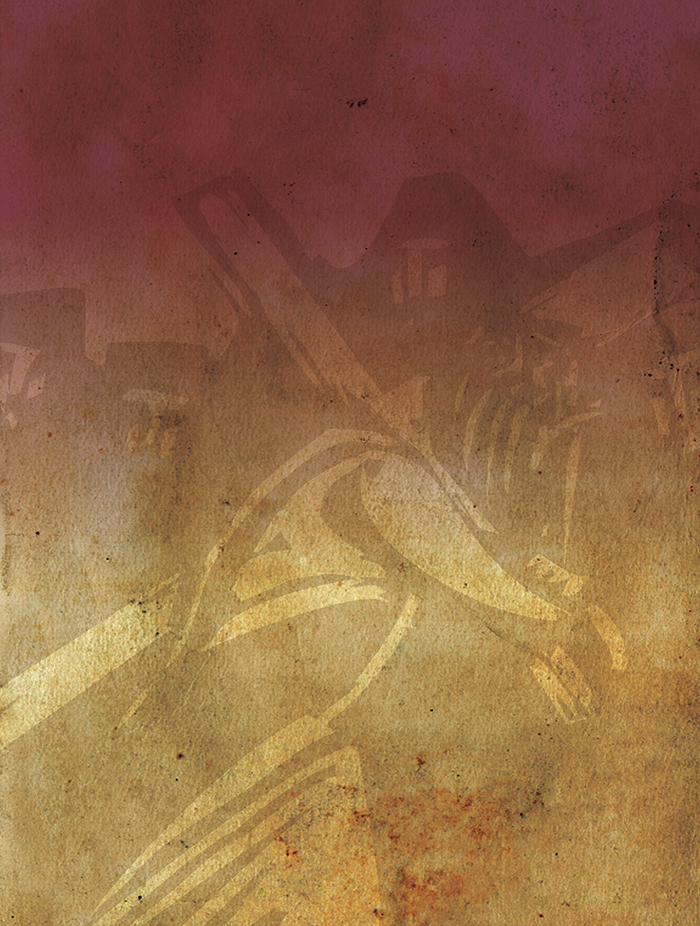Death Before Resurrection: The Gift of the Holy Triduum

When reading a gripping and suspenseful novel, there is always the temptation to turn to the back of the book and see how the story ends. However, in doing so, the suspense and drama leading up to the conclusion often becomes less intense. The Resurrection is clearly a central act in the renewing and redeeming of all things. Unfortunately, too many Christians fail to fully experience the joy and hope of resurrection because they have overlooked the invitation to walk with Jesus all the way to the cross.
The joy of Christmas holds more power and promise because of the longing, waiting, and hoping that comes with Advent.
Similarly, I am convinced that the season of Lent, with its emphasis on human mortality, sin, and the deep need for Jesus as our Savior, is a wonderful gift. A meaningful Lenten journey along with Christ’s invitation to follow Him into the shadow of the cross provides context for a richer and deeper celebration of the joy of Easter.
The Three Holy Days
The season of Lent begins on Ash Wednesday and concludes right before the Easter Triduum (three days). While the entire journey of walking with Jesus into the shadow of the cross (Lent) is powerful, I want to focus on the final three days before Easter. This includes the last part of Holy Thursday (or Maundy Thursday), Good Friday, and Holy Saturday.
The word Maundy comes from the Latin word mandatum, meaning ‘commandment.’ Therefore, the Maundy Thursday service celebrates the Last Supper with the disciples, along with the command Jesus gives them to “love one another as I have loved you” (John 13:34). This love is embodied through the act of foot washing.
The Last Supper and foot washing are events of great tenderness and intimacy, wherein Jesus invites His disciples to see that salvation is only possible through intimacy with Jesus all the way to the cross. In many ways, the Maundy Thursday service can help prepare worshippers to experience again the love of Christ and find the empowerment to walk with Jesus all the way to Calvary, which is not done alone, but together as a community.
The service on Good Friday is often called the Tenebrae or “Service of Shadows.”
It is a service about remembrance, but also an invitation to continue walking faithfully with Jesus.
This is a service in which we are reminded of our sinfulness and our culpability in His death, as well as a time to experience again the Triune God’s deep love for us. For many who have experienced abuse, pain, and despair, the Good Friday service can provide an opportunity to see how God in Christ enters into that despair and becomes a fellow-sufferer.
In many ways, this service is central to the Resurrection celebration of Easter. If one has not walked through the death of Christ, the good news of Easter morning may feel like emotional manipulation. In many ways, only after viscerally (to the core of your being) experiencing the death and despair of Christ, does the in-breaking joy of new life guide the Resurrection celebration. It is also crucial to note that Good Friday is not “good” because Jews and Romans conspired to murder Jesus.
It is good because the love of the Triune God allowed Jesus to be killed to defeat sin and death.
Following the solemn ending of Good Friday, Holy Saturday is a day of silence. In many traditions, this is the only day in the Church year where the church does not celebrate the Eucharist (Communion). On this day, we recognize that “the heavens are shut up.” It is another day to let the reality and despair of Jesus’ death sink in.
All Things New
I have come to find that leaning into these three holy days helps facilitate a more authentic experience. With proper preparation, the joy of resurrection becomes more meaningful than simply skipping to the end of the novel for a Sunday morning “sugar rush” celebration. Theologically, with the Apostle Paul and the Gospels, we recognize that there is no resurrection without death. To overlook the tender love of Christ in the foot washing and Lord’s Supper, the death of Christ and all of its horror, and the silence and sadness of Holy Saturday is to miss an opportunity to let the surprise, joy, and celebration of Easter fall upon us. Holy week better shapes us as a people of hope that in the Resurrection, God indeed is making all things new.
Brent Peterson is dean of the school of theology and Christian ministries at Northwest Nazarene University.
Holiness Today, March/April 2018
Please note: This article was originally published in 2018. All facts, figures, and titles were accurate to the best of our knowledge at that time but may have since changed.




